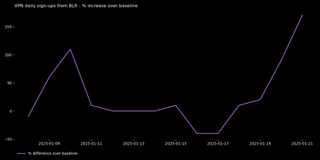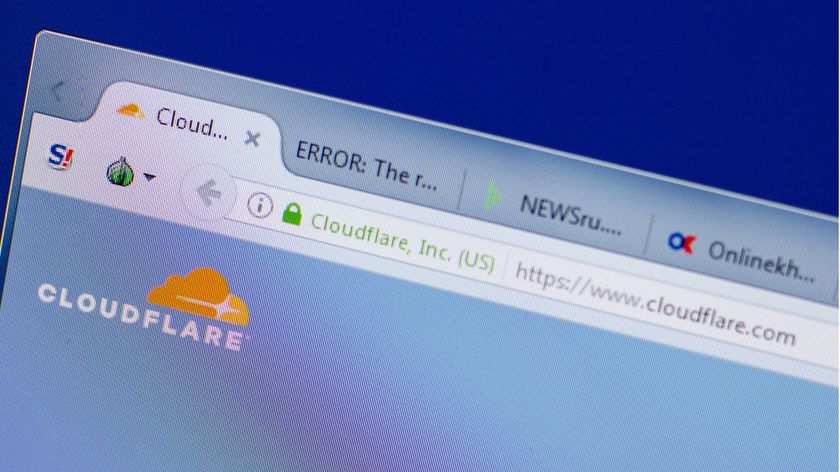Belarus elections: how likely is an information blackout?
Belarus is ready to shut down the internet – again

On Sunday, January 26, 2025, Belarus will head to the polls to vote in the presidential elections. Concerns are growing, however, over a potential information shutdown during these crucial days.
Ruling since 1994, current Belarusian President Alexander Lukashenko has already said to be ready to shut down the internet completely in the event of protests, the Kyiv Independent reported. This is what happened, as per Lukashenko's acknowledgment, during the contested 2020 presidential elections.
According to Felicia Anthonio, #KeepItOn Campaign Manager at Access Now, this is "clearly a deliberate tactic to stop people from mobilizing and instill fear" among those looking to challenge the regime, as happened in 2020.
On their side, however, citizens have reportedly started turning to the best VPN services ahead of the big day to navigate potential disruptions. So, what's at stake for people in Belarus?
Belarus' grip on the internet
"As we have seen in 2024, elections are often flashpoints in internet censorship, with increased blocking often undertaken by countries that already censor access to information. The landscape around the elections in Belarus is no different," said Antonio Cesarano, Product Lead at Proton VPN.
Belarus has, in fact, a long history of restricting or shutting down the internet.
As Stanislav Shakirov, Technical Director of the Russian digital rights advocacy group Roskomsvoboda, explains, the government censors all information that's disloyal to the authorities.
After the mass protests in 2020, for example, Shakirov said there have also been quite a few cases where citizens have been stopped on the streets by police officers looking to inspect their phones and messages. In its latest report, Freedom of the House also noted how internet freedom across the country continued to deteriorate, yet again, last year.
"Censorship in the country is serious," Shakirov told TechRadar, "As far as I know, activists there use various modified apps that allow them to hide messengers and banned media apps on their gadgets."
While Lukashenko's grip on the internet has always been strong, the 2020 election was a turning point. The wave of anti-government protests calling for election fraud was indeed met with widespread internet disruptions to prevent people from sharing information and staying in touch.
Update: It has been almost 24 hours since #Belarus fell largely offline after a series of worsening internet disruptions during Sunday's elections.Real-time network data confirm the incident is ongoing, limiting freedom of expression and assembly 📉📰 https://t.co/JcBhvhgVcR pic.twitter.com/Siz33QIFqUAugust 10, 2020
Now, about five years later, the President could pull the plug on the internet another time. But, how likely is this to happen?
According to Shakirov, everything depends on how confident the authorities in Belarus will feel. "Our forecast is that there will be shutdowns only in case of protests or riots. If the elections go smoothly nothing will be blocked beyond what is already blocked," he said.
Nonetheless, YouTube, Telegram, TikTok, and other social media and messaging platforms had been temporarily blocked at the beginning of the month. Experts believe this is a test ahead of the presidential election.
Considering the recent reports of network disruptions, for Anthonio from Access Now, the threat of election-related shutdowns cannot be ruled out.
She said: "Telcos and internet service providers operating in the country have a responsibility to uphold people’s rights and must resist government orders to restrict or cut off access to the internet and digital platforms in the country throughout the elections and beyond."
Getting ready to navigate online disruption
There's a big chance that, if you're in Belarus, you'll need to find a way to stay online.
This is where a VPN comes in. A virtual private network (VPN) is software that encrypts all your internet activities to prevent unauthorized access while spoofing your real IP address location to grant access to otherwise geo-restricted content.
While Belarus's censorship used to be worse than Russia's, Shakirov explains, the Kremlin boasts a way more technologically advanced system that targets circumventing tools like VPNs. In Belarus, however, the authorities still simply knock out the entire Internet, rather than trying to block VPN-like software.
This is certainly good news for all the people in Belarus who have already downloaded their VPN app. Proton VPN, for example, recorded an increase in signups of 170% above baseline so far, despite its product being already very popular within the country.
"Rather than reacting to censorship, they are preempting higher levels of internet blocks, as they did in Turkey and elsewhere," said Cesarano, from Proton VPN, explaining that people in Belarus can access free servers within the country, as well as free servers based in the neighboring Poland.

Shakirov also suggests downloading several circumvention tools at once to be able to hop from one to another in case these don't work as they should. I recommend checking our best free VPN guide to get only the most secure services out there.
"You can use free versions of Tor Browser, Lanter, Psiphon, Amnezia VPN Free RU (version for Russia). But you should also get a proven paid VPN," he added.
It's worth noting that these tools won't work in case of total shutdown (when all internet connections go dark) as they still rely on internet connectivity to work. To prepare for this scenario, Shakirov recommends withdrawing cash so you always have something to pay with if the ATMs don't work.
Besides censorship-resistant tools, Cesarano from Proton VPN also recommends taking some steps to further secure your communications. He said: "In a country where the authorities already monitor people’s social media activity to find evidence of dissent, as well as protecting their connections by using a VPN, we recommend people protect their communications further through secure tools such as Proton Mail."

Chiara is a multimedia journalist committed to covering stories to help promote the rights and denounce the abuses of the digital side of life – wherever cybersecurity, markets, and politics tangle up. She writes news, interviews, and analysis on data privacy, online censorship, digital rights, cybercrime, and security software, with a special focus on VPNs, for TechRadar and TechRadar Pro. Got a story, tip-off, or something tech-interesting to say? Reach out to chiara.castro@futurenet.com
You must confirm your public display name before commenting
Please logout and then login again, you will then be prompted to enter your display name.
Most Popular





